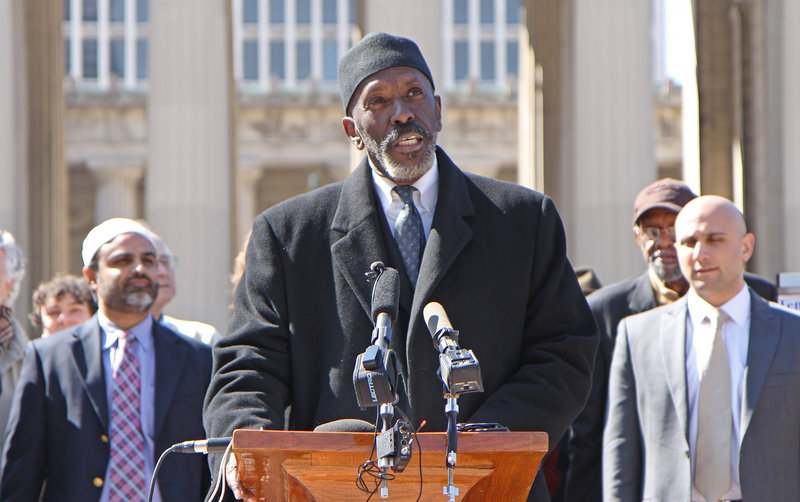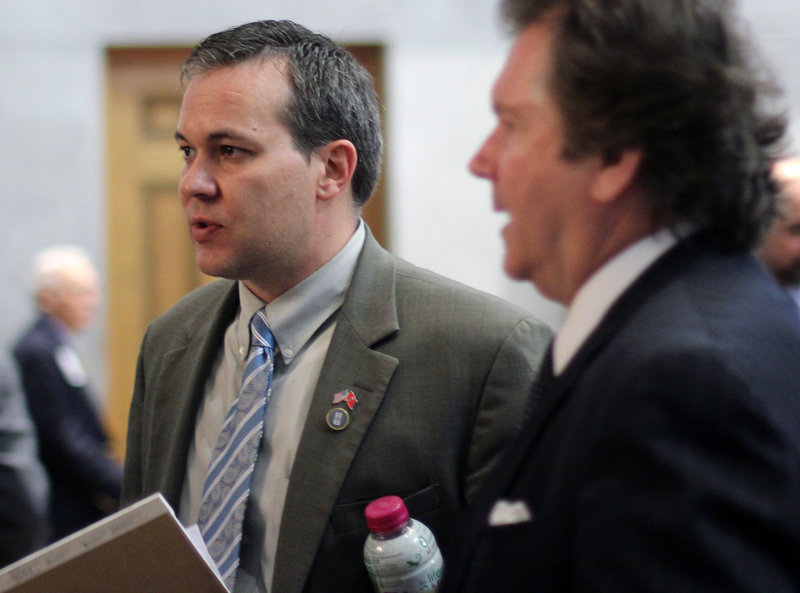NASHVILLE, Tenn. – Tennessee Republican leaders say they’re willing to talk with concerned Muslims about legislation that would make it a felony to follow some versions of the Islamic code known as Shariah, even though activists say their requests for discussion have gone unheard.
The proposal, which is drawing national attention, represents the boldest legislative attempt yet to limit how Muslims worship.
Shariah is a set of core principles that most Muslims recognize as well as a series of rulings from religious scholars. It covers many areas of life and different sects have different versions of the code they follow.
Muslim groups fear the measure would outlaw central tenets of Islam, such as praying five times a day toward Mecca, abstaining from alcohol or fasting for Ramadan.
The bill’s sponsor, Republican Sen. Bill Ketron of Murfreesboro, said the proposal exempts the peaceful practice of Islam, but seeks to condemn those “who take Shariah law to the other extreme” and gives state and local law enforcement officials “a powerful counterterrorism tool.”
Republicans say they’re open to talking to Muslims about whatever concerns they have about the legislation.
“I’ll sit down with anybody and talk to them,” said Senate Speaker Ron Ramsey of Blountville, who acknowledged he hasn’t seen the bill, but plans to examine it. “I don’t think I’ve ever turned down a group that wants to meet with me.”
Last year, Ramsey, a gubernatorial candidate at the time, was criticized by a national Muslim rights group for questioning whether Islam is a religion or a cult.
When a reporter referred to the incident this week, Ramsey said: “There’s a portion of Islam that I think is a cult.”
Ketron said he’s also open to discussions, as is Republican House Speaker Beth Harwell of Nashville. Ketron said members of the Muslim community have not contacted him concerning the measure.
Remziya Suleyman, policy coordinator for the Tennessee Immigrant and Refugee Rights Coalition, said that’s not true. She said Muslim community leaders and others outraged over the legislation tried to contact its sponsors before and after it was proposed.
“Community leaders have reached out to the sponsors, and it’s the sponsors of the bill who have not returned the calls,” said Suleyman, whose organization was among several civil rights and interfaith groups that held a news conference earlier this week to oppose the proposal.
When asked about the anti-Shariah legislation, House Speaker Pro Tempore Judd Matheny of Tullahoma, a main sponsor, told an Associated Press reporter “no comment.”
If talks do occur, opponents of the measure say they will ask for the measure to be pulled.
“The heart and soul of this bill is an egregious assault against the Muslim community and it needs to disappear,” said Gadeir Abbas, an attorney with the Washington, D.C.-based Council on American-Islamic Relations.
At least 13 states have bills pending that would bar judges from considering Shariah in legal decisions, according to the National Conference of State Legislatures, but none of those proposals is as strict as what Tennessee is weighing.
If the law is passed in Tennessee, it could face a legal challenge. A law passed in November by Oklahoma voters banning the use of Shariah law in state courtrooms was blocked by a federal judge pending the resolution of a lawsuit calling it unconstitutional.
Send questions/comments to the editors.




Success. Please wait for the page to reload. If the page does not reload within 5 seconds, please refresh the page.
Enter your email and password to access comments.
Hi, to comment on stories you must . This profile is in addition to your subscription and website login.
Already have a commenting profile? .
Invalid username/password.
Please check your email to confirm and complete your registration.
Only subscribers are eligible to post comments. Please subscribe or login first for digital access. Here’s why.
Use the form below to reset your password. When you've submitted your account email, we will send an email with a reset code.